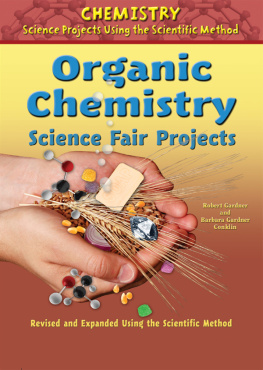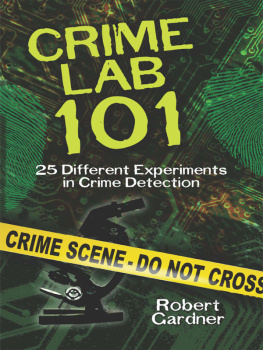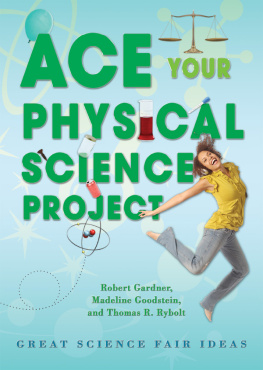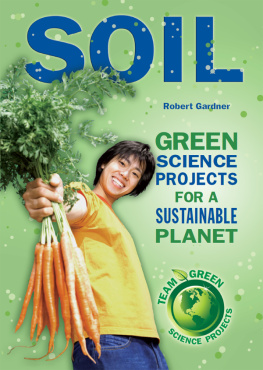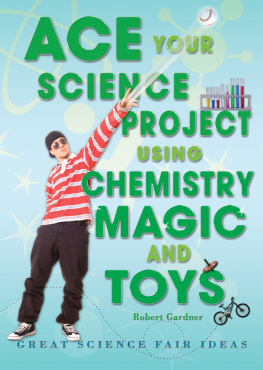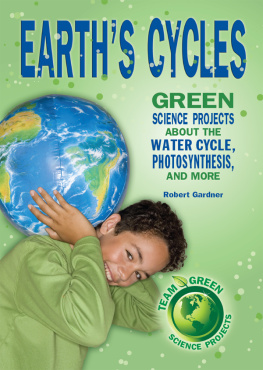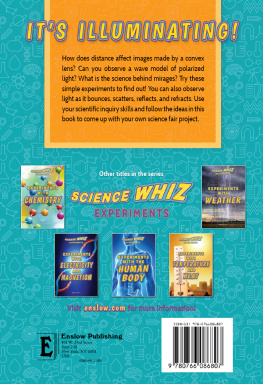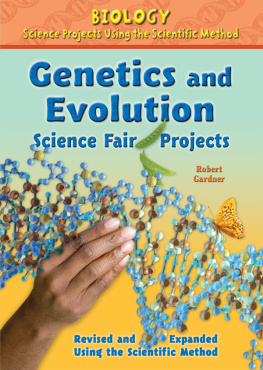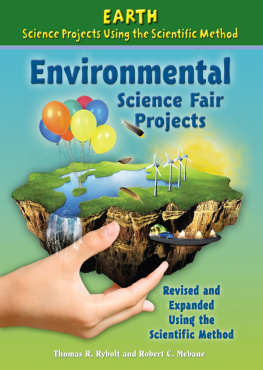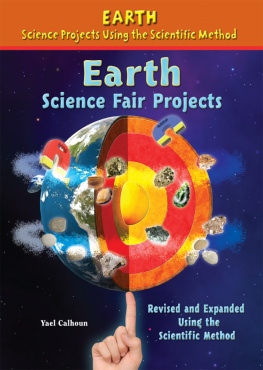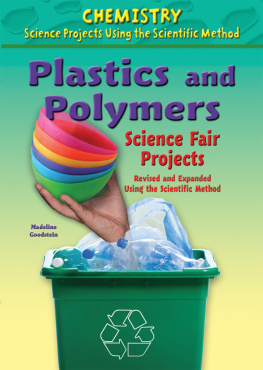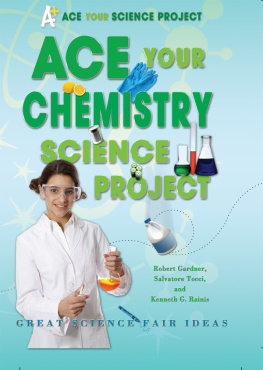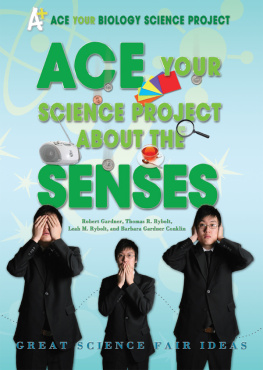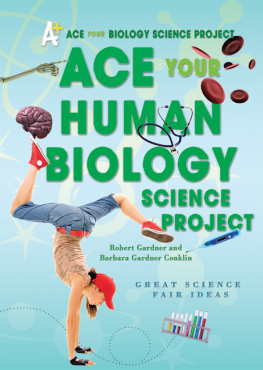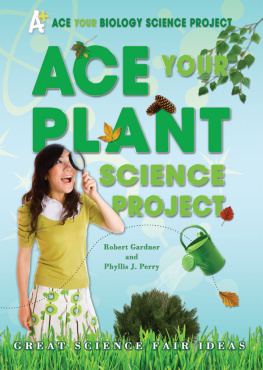FRENCH FRIES, GUMDROPS, SOAP, AND MORE!
Do all onions cause your eyes to tear when you cut them? What happens if you heat a carbohydrate? How is an electric cell made? Using easy-to-find materials and the scientific method, student scientists can learn the answers to these questions and more. For students interested in competing in science fairs, the book contains lots of great suggestions and ideas for further experiments.
ABOUT THE AUTHOR
Robert Gardner is an award-winning author of science books for young people. He is a retired high school teacher of physics, chemistry, and physical science. Barbara Gardner Conklin is a special education teacher and author.

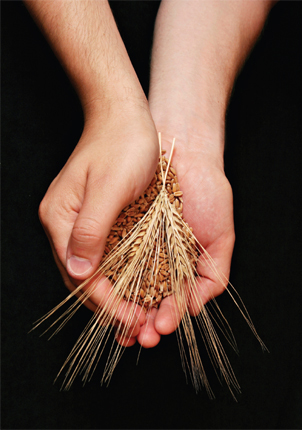
Image Credit: Katharina Wittfeld/iStockphoto.com
Carbon is found in every living thing, from grains like wheat to the humans that cultivate it.
Chemistry is the part of science that deals with what materials are made of and how they combine with one another. Organic chemistry, the subject of this book, studies all the millions of compounds that contain carbon. Another book in this series deals with inorganic chemistry, substances lacking carbon.
Since foods are made up of organic compounds, part of this book involves experiments on foods and cooking. In doing those experiments, youll be spending a lot of time in your kitchen laboratory making use of the stove, refrigerator, and sink. But to give you a sense of what carbon compounds are like, well first explore their properties. Chapters 1 through 3 will explain why chemicals change. Theyll help you understand what happens in your kitchen experiments.
This book contains lots of fun experiments about organic chemistry. Youll also be given suggestions for independent investigations that you can do yourself. Many of the experiments are followed by a section called Science Project Ideas. This section contains great ideas for your own science fair projects.
The experiments are all easy to do and safe to carry out when the instructions are followed as given. Consult with your school science teacher or some other responsible adult to obtain approval before starting any experiments of your own.
If any danger is involved in doing an experiment, it will be made known to you. In some cases, to avoid any danger to you, youll be asked to work with an adult. Please do so. We dont want you to take any chances that could lead to an injury.
Most of the materials youll need to carry out the projects and experiments described in this book can be found in your home. Several of the experiments may require items that you can buy from a supermarket, a hobby or toy shop, a hardware store, or one of the science supply companies listed in the appendix. As you begin to use this book, show it to one of the science teachers in your school. Perhaps the teacher will allow you and some of your friends to use the schools equipment. At times, youll need a partner to help you. It would be best if you work with friends or adults who enjoy experimenting as much as you do. In that way youll both enjoy what youre doing.
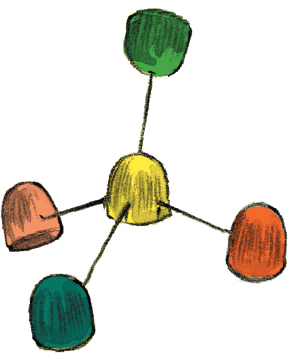

When scientists have a question to answer, they start by researching. They read scientific literature and consult online science databases that are maintained by universities, research centers, or the government. There, they can study abstractssummaries of reportsby scientists who have conducted experiments or done similar research in the field.
In this way, they find out whether other scientists have examined the same question or have tried to answer it by doing an experiment. Careful research will tell what kind of experiments, if any, have been done to try to answer the question.
Scientists dont want to repeat experiments that have known and accepted outcomes. Also, they want to avoid repeating any mistakes others may have made while doing similar experiments. If no one else has done scientific work that answers the question, scientists then do further research on how best to do the experiment.
While researching for the experiment, the scientist tries to guessor predictthe possible results. This prediction is called a hypothesis.
The scientist hopes that a well-researched and carefully planned experiment will prove the hypothesis to be true. At times, however, the results of even the best-planned experiment can be far different from what the scientist expected. Yet even if the results indicate the hypothesis was not true, this does not mean the experiment was a failure. In fact, unexpected results can provide valuable information that leads to a different answer or to another, even better, experiment.

A scientific experiment starts when someone wonders what would happen if certain conditions were set up and tested by following a specific process. For example, in an experiment testing the ability of table salt (sodium chloride) to conduct electricity, you can ask the question: Is table salt more conductive when it is dissolved in water to make a saltwater solution? To find the answer, some possible guesses, hypotheses, would be:
- Solid table salt conducts electricity better than salt water.
- Salt water conducts electricity better than solid table salt.
- Neither form of table salt will conduct electricity.
Lets say your hypothesis is that salt water will conduct electricity better than the solid table salt. For a start, we have to know that a scientific experiment can have only two variablesthat is, only two things that can change. For this experiment, one variable is whether the salt is dissolved in water or whether it is solid. The other variable will be the electrical conductivity of each form of salt.
The form of salt is allowed to change (either a solid or in solution) but not the equipment producing the electrical charge, and not the amount or strength of the charge the equipment produces. If the electrical charge differed when the solid salt and the salt solution were tested, then we couldnt tell how the conductivity of one form compared to the other.
Now, if the experiment is carried out and the results show there is no difference in the conductivity of solid salt and dissolved salt, this would not mean your experiment is a failure. Even if your hypothesisdissolved salt conducts electricity betterturns out to be false, the results of your experiment still can provide important information. And these results may lead to further ideas that can be explored.

Scientists may develop logical explanations for the results of their experiments. These explanations, or theories, then must be tested by more experiments. If the resulting data from more experiments provide compelling support for a theory, then that theory could be accepted by the world of science. But scientists are careful about accepting new theories. If the resulting data contradict a theory, then the theory must be discarded, altered, or retested. That is the scientific method.

